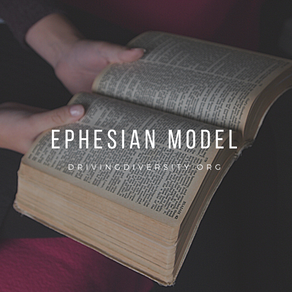 We sat silently at a downtown coffee shop, swirling the Rwandan brew in our cups, the Cincinnati skyscape towering over our sidewalk table — two Ohio Assemblies of God pastors sharing hearts and vision. He asked, “How would you counsel me to lead my (midsize, suburban) congregation into a multiethnic future? I feel a profound burden to do this. We can’t stay where we are. Our city needs this. Our church needs this. But I don’t know what I don’t know.” This wasn’t the first time I’ve heard this. It seems God is burdening many hearts these days for church reflecting heaven on earth. Our own story as Peoples Church Cincinnati involves a 20-year transition from a 98 percent homogeneous white commuter church to a 50 percent nonwhite congregation comprising 30-plus nations. And despite the racially charged times in which we live, we are 25 percent African-American. The Lord has done this. As I contemplated my friend’s earnest question, I felt stirred to reply, “Start with theology. Whatever you do, root it in Scripture. Hell will fight you on this, and when it does, you want this vision anchored in God’s Word.” I shared from Ephesians 2 and 3 about a biblical model of a multiethnic church. The intensity of God’s mind on this matter captivates my heart and astounds me. The Ephesian Model New Testament Ephesus compares to today’s American society. With a mix of Gentile God-fearers, conservative zealots, marketplace liberals, idol worshipers, indigenous people, and internationals, the city was ethnically, economically, religiously diverse. This port population center on the western edge of what is now Turkey flourished as a cosmopolitan melting pot, the Roman Empire’s third most influential city. The Ephesian church was also a collective — united in Christ, Spirit-filled and gospel-rooted. This diverse congregation was making known the “manifold wisdom of God” — in the city and “in the heavenly realms” (Ephesians 3:10). Did you catch that? Not only was the church influencing society and spreading the gospel, but its Christ-centered existence in diverse unity was capturing attention in the spiritual realm. Paul calls this diverse unity of formerly disparate and hostile Jews, Greeks and Romans the “mystery of Christ,” which the Holy Spirit revealed (Ephesians 3:4-6). As this church came together, the mystery of Christ, hidden for ages, became apparent. Let that sink in. Our fractious United States could benefit from the same prophetic, reconciling Kingdom congregations. Such a movement would shake the gates of hell. In Ephesians 2, Paul provides a compelling vision and model for diversely united churches in our day. After unpacking the gospel, he links it to the idea of a diversely united local church. This message is applicable to your church setting — whether rural, suburban or urban. Continue reading here (Used with permission) 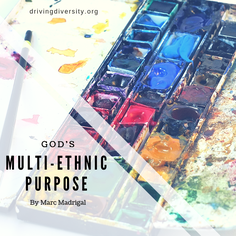 We are not the same. We each come from different backgrounds, experiences, and cultures. Some days it can seem like all these differences are more of a curse than a blessing. If only I was like everybody else, then I would fit in. But God often uses people who don’t fit to advance his kingdom. He picks the people who do not belong to do what cannot be done. Here are three quick examples. Moses was a Hebrew raised like an Egyptian. He ate at Pharaoh’s table and dressed in royal garb. But by blood, he was a Hebrew. He was born to a slave. Although he lived like a member of the royal household, we know deep down he still cared about his people. Eventually he lashed out and murdered an Egyptian who was oppressing his people. His fellow Hebrews wanted nothing to do with him. Neither a true Egyptian royal nor an authentic Hebrew, his identity crisis caused him to flee into obscurity for forty years. But God had a plan for him. Moses alone could demand an audience before Pharaoh’s court and claim a shared heritage with the people he would lead. Among the Hebrews of Egypt, he was not the same. Scripture tells us of an unlikely queen. As a Jew living under the Persian Empire, Esther’s beauty gained the attention of King Xerxes. But even as the crown was placed on her head, her true identity remained a secret to all. No one knew she was a Jew. But when a plot arose to destroy her people, Queen Esther held a unique position of influence and privilege. She alone of all the Jews could gain an audience with the King. She alone could convince him otherwise and thwart disaster. Through her talent and courage, God saved the Jewish people. Among the Jews of Persia, she was not the same. Half-Greek and half-Jew, Timothy stood out as an anomaly. He may not have been pure enough for real Jews or Greek enough for real Greeks. But when the Apostle Paul came to his hometown, carrying a unique message of reconciliation for both Greek and Jew alike, Timothy was exactly the partner Paul was looking for. To gain credibility for their journey, Timothy immediately endured the pain of adult circumcision. A bi-racial Timothy accompanied Paul to great evangelistic success and eventually shepherded God’s church like very few in the New Testament. Among the Greeks and Jews, he was not the same. As I look over these three stories, I can’t help but come to a fascinating conclusion: if God wanted us all to be the same, he would have made it so. Instead, he created us differently. He positioned us in unique situations. He made us credible, trans-cultural, and distinct among certain people in certain places. He did this because He has a greater purpose than what we might initially realize. Some of us have been given an ethnic identity that doesn’t always match our surroundings. We wonder why we stick out. We think we need to become something we’re not to survive. We may at times grow frustrated by a nagging inability to feel at home among our own people. But perhaps what appears to be a disadvantage is part of the plan. Moses wasn’t like the other Hebrews in Egypt. Esther wasn’t like the other Jews of Persia. Timothy wasn’t like the other Greeks. They weren’t the same and neither should you be. 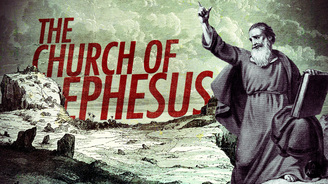 The letter to the church at Ephesus is special. It contains the clear, fluent plan of God. Paul tells the Ephesian pastors in Acts 20:27 that he gave them the whole will of God through three years of effort with tears, night and day. And he calls them to keep watch over the whole church with their complete knowledge of the Kingdom. What was so complete?
1. The Complete Church Ephesians 2. Through the grace and mercy of the cross and the power of the resurrection, both Jews and nations are made alive, included and united in one new man. (Eph. 2:1-18) 2. A Dwelling in which God Lives One united household of fellow citizens built on the foundation of the apostles and prophets, with Jesus as the chief cornerstone, built together to become a dwelling in which God lives by His Spirit. (Eph. 2:19-22) 3. God’s Manifold Wisdom Through His ethnically, socioeconomically diverse and united Church, God intends now to reveal His manifold wisdom to “the rulers and authorities in the heavenly realms.” (Eph. 3:10) ALL OF THIS WAS ACCOMPLISHED IN CHRIST JESUS OUR LORD, and has always been the plan. (Eph. 3:11) 4. All Things Under His Feet “[God has seated Him] far above all rule and authority, power and dominion...not only in this present age, but also in the one to come. And God placed all things under his (Christ’s) feet and appointed him to be head over everything for the church; which is his body, the fullness of him who fills everything in every way.” (Eph. 1:20-23) He’s given us the same incomparably great power as His holy people united together. The power is the same as what raised him from the dead and seated Him in heaven. (Eph. 1:19-20) And He is our Head! For clarity on this point, consider 1 Cor. 15:24-25, “Then the end will come, when he hands over the kingdom to God the Father after he has destroyed all dominion, authority and power. For he must reign until he has put all his enemies under his feet.” In other words, every enemy of Jesus is now being brought under His authority, in this age and for all eternity. Every evil, every injustice, every principality which oppresses people and opposes Him and His Kingdom ways. And the most powerful church, His very Body in the earth, is the Church united, Jews and nations as ONE NEW HUMANITY through Christ Jesus in which His fullness dwells by His Spirit! 5. A Kingdom, A Priesthood “And they sang a new song, saying: ‘You are worthy to take the scroll and to open its seals, because you were slain, and with your blood you purchased for God persons from every tribe and language and people and nation. You have made them to be a kingdom and priests to serve our God and they will reign on the earth.” (Rev. 5:9-10) So, in simple terms, here is the Whole Plan (Will) of God, made known to the pastors at Ephesus (Acts 20:27): A Church of every tribe, tongue and nation, healed and loving deeply across the deepest human divides, Jew and Gentile first, full of the Spirit of God and His power and authority under His headship, bringing every enemy of Christ under His rulership, His ways, in all the earth, until the day He hands over the Kingdom to the Father... “And when He has done this, then the Son himself will be made subject to him who put everything under him, so that God [the Father] may be all in all.” (1 Cor. 15:28) The key to all of this is one new humanity through Jesus Christ. Otherwise, there is not the complete body for Him to fill with His full presence to accomplish His whole plan. 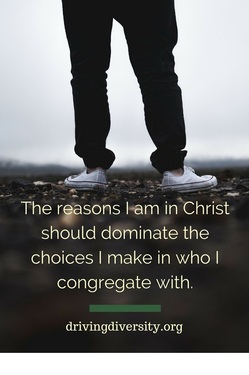 Attend and congregate—here are two simple verbs that are often used to describe what the church is or what one does in relation to church. Is the church a place we go to or something we are a part of? Do you go to (attend) church or does your church gather (congregate) regularly at a particular place and time? Now before you dismiss this post as splitting of hairs, stick with me a minute or two. I think the difference is more than semantics. The difference between the church as people or place is crucial. If the church is a place that one attends, then how we get people to come to it becomes a real question. It deals with marketing and consumption. We want to give our attendees a great experience, a good product, so that they will become faithful customers/attenders. Is this not what we are all about in the church these days--attracting customers? Loyal customers who stay with us year after year. Even more so, we want customers who will become salespeople, like your classic pyramid scheme. This is just one of the many pitfalls of redefining church as a place we attend. Now, if the church is a congregation that we are a part of, then it would make sense that we should gather periodically. We need to gather to refresh our relationships with one another. Just like families gather; we gather not to become family, but to stay current, to stay in touch and enjoy each other’s company. But the church is more than a family. We are the body of Christ. This means we share in his vision and mission. So we also need to gather to discuss how to work together in that mission and to celebrate the reason we are one in the first place. This is often called worship. We gather to sing, shout, rejoice, and learn so that we can represent him better and better within our spheres of influence. So what does this have to do with diversity? Well, if church is something we attend, then it really doesn’t matter where we attend. We can pick the consumer experience that best caters to our own personal likes and needs. This view of the church results in a segregated church. If on the other hand, the church is something supernatural that we belong to by the Holy Spirit’s presence in our lives, then I don’t get to choose who I congregate with. The reasons "I am in Chris"t should dominate the choices I make in who I congregate with- namely, to represent him well in the world as his body extended to each other and our community. This view of the church drives us towards diversity. 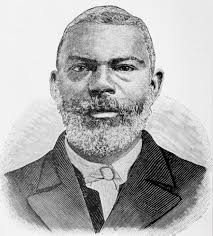 George Liele, the first person to leave the U.S. and plant a church in another country. George Liele, the first person to leave the U.S. and plant a church in another country. Did you know that the first person to leave the U.S. and plant a church in another country was Black? Even though the Southern Baptist Convention has failed to recognize George Liele as the first overseas missionary from the US because he was not “sent out” like Adoniram Judson who went to Burma thirty years later, many acknowledge him as such. Liele is just one of the many forgotten names of African American missionaries. In campus missions we often talk about the Christian heritage of the university. Most of our educational institutions were started for the training of missionaries and pastors. Even though our campuses are far from that today, university missionaries work to see God’s original vision for these strategic places fulfilled. We also believe that the heritage of George Liele and others like him should not be forgotten, but instead, should be built upon for the greatest mobilization of people of color the world has ever seen. Today less than 1% of the 118,000 US missionaries are African American. This should not be! Our Father is calling our African American brothers and sisters into the harvest field, and it is our job as Christian leaders, to make straight paths for them. While the task may seem impossible in light of the cultural and economic obstacles most African Americans face trying to enter missions, we must step out in faith, do what we can, and trust God for the rest. So we must grow our faith by remembering people of faith. We need to educate our congregations regarding the history of African American missions, making names like George Liele and David George as well-known as Fredrick Douglas and Martin Luther King. We need to teach about needs beyond our local community and help give our people a global vision. It takes the whole body to do the whole work, and they need to know they are part of the body! Most importantly, we need to make sure we are including the call to missions as part of the calls we issue to those in our flock. Morgan Smith, Chi Alpha missionary to Tulane University in New Orleans told me, “I went on a missions trip while in high school and totally fell in love with missions, but I dismissed the idea that I myself could be a missionary. I had never seen anyone in missions that looked like me.” It wasn’t until her campus leader personally challenged her that she realized, God could use her too. Another one of our missionaries, Raydon Haskins, a native of Gary, Indiana, puts it this way, “You can’t answer a call you haven’t heard.” Lastly, we need to personally work at helping those God calls to get to the mission field. We need to take the strong community elements in the African American culture and translate it into a mission’s partnership. Like the church at Antioch that sent out Barnabas and Paul, we need to become sending churches. As we teach our people to give to missions, we will give them the opportunity to partner with Jesus himself in the global mission of reaching the world. The world has become a very diverse place, yet our missionary force is almost the complete opposite. In Chi Alpha we recognize the strength each ethnic and racial group brings to the table and desire that our missionary teams be as multi-ethnic as the places they serve. Currently, over 5% of our staff is African American and less than 85% Caucasian. Still, we have a long way to go. Will you partner with us in the vision of seeing every nation, tribe, people, and language not just reached but mobilized? Together we can see a whole new generation of George Lieles serving all around the world. 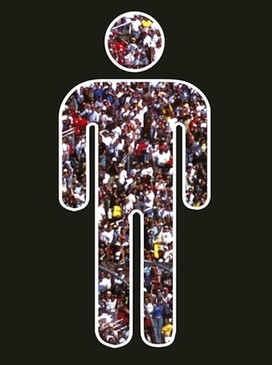 “The Word became flesh and made his dwelling among us. We have seen his glory, the glory of the one and only Son, who came from the Father, full of grace and truth.” John 1:14 I love this simple yet profound Christmas message. That which we could only think about and imagine has become flesh, so that we can SEE glory, grace, and truth for ourselves. The incarnation is the most beautiful and most necessary of Christian truths. A God that is far away and cannot be known is worse than no God at all. It is like a beautifully wrapped present that we are not allowed to open, play with, or enjoy. Jesus faithfully showed us the Father. Now it’s our turn. The church is called the body of Christ because we represent God’s anointed one in the world. We are that which can be heard, which can be seen with the eye, which can be looked at and hands can touch. Represent, not like a salesman or even an ambassador, but represent like Jesus represented the Father, “an exact image of his being.” When the world looks at the church, they are supposed to be able to see Messiah and thus the Father. Not a religious idea, but the very character of God. This is one of the simplest reasons why the church must be diverse. A mono-ethnic community cannot express the character of God like a multi-ethnic one. It is not just the fact that our different cultures express the diversity and fullness of who God is. It is all those wonderful aspects of God’s character that find greatest expression in a diverse congregation: forgiveness, reconciliation, sacrificial love, and of course grace, to name a few. This is what the world is hungry for. This is what Jesus gave it- an authentic and clear image of who God is. This is what the church must BE today.-God in the flesh for the entire world to see. Biblical Rationale for Church Like Heaven - by Pastor Chris Beard, Peoples Church Cincinnati10/9/2015
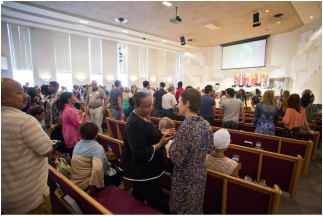 In Revelation 7:9 we see the Church gathered before the throne in heaven, a multitude from “every tribe, tongue, nation and people,” proclaiming that “salvation belongs to our God, and to the Lamb.” Jesus taught us to pray in Mt. 6:10, “Father your will be done on earth as it is in heaven.” What if local churches on earth became microcosms of Church in heaven (every tribe, tongue, nation) in so far as their community’s demographics allowed? Another prayer Jesus prayed found in John 17:21-24 explains how church like heaven is connected to the Great Commission, “Father, I have given them glory as you gave me, that they may be one…. Then the world will know that you sent me….” Is the unity that the Gospel produces across deep human barriers of racism, culture, class and ethnicity the missing apologetic in the American Church? Is this what the world is waiting for in order to believe Jesus is the messiah? Paul writes in Ephesians that the “mystery of the Gospel is this, that the ethne (Gentiles) are fellow heirs, members of the same body….” The book of Romans is predicated on this same vision, “This righteousness is given through faith in Jesus Christ to all who believe. There is no difference between Jew and Gentile” (Romans 3:22). As if to really drive the point home Paul adds in 3:29, “Or is God the God of Jews only? Is he not the God of Gentiles too?” So what will happen when the Church becomes united on earth as in heaven, every tribe, tongue, nation and people? The world will begin to believe. The Antioch church leadership team in Acts 13:1 demonstrates what can happen: Barnabas and Paul (Saul) were Jews, the rest were Gentiles. They were Simeon called Niger (a sub-Saharan African), Lucius of Cyrene (North Africa) and Manaen (a Gentile raised wealthy). The diversity of this team is remarkable. It was fruit of a many nations church. It is this church and this leadership steam that launches the New Testament missionary movement. Azusa Street in 1906 catalyzed this same possibility. We have this in our DNA. The world wants to believe; they are waiting to see church like heaven on earth. original post: January 11, 2013 This morning after reading an article a friend sent me, I had to go to my room to pray and cry. (Here is the link if you would like to read it.) I warn you that, in addition to having some profanity and an abundance of raw, honest exposition, it may cause the same reaction in you it did in me. I pray it does.
What I want to say to you today, whether you read the article above or not, is that we need to move past the "does racism exist in the hearts of people or in systems and institutions?" and on to the "how do we fix this?" discussion. I would think both those questions were dramatically answered at the massacre at Emanuel African Methodist Episcopal Church less than one month ago. I personally am not sure I know hot to fix a mess that has taken hundreds of years to create and that the majority of the people around can't see or would prefer to believe doesn't exist. But do something, we must. So I encourage you who are reading this- DO SOMETHING. "What?" you ask. More than you've done in the past. "What would that be?" you'd like to know. I already said, I'm not sure. But, if, as I suspect, you are part of the kingdom of God and pray regularly, "your kingdom come, your will be done", then I encourage you, no, I challenge you, perhaps, I even dare you, ASK! Ask those who seem to be doing something or are affected by racism. Just asking this question, may be much more you have done before. But, please, don't ask if you are not actually going to do. Listen, learn, and act. Ask God. I have to believe that if you are honest in your desire to do something, then he, who cares about these things more than any of us do, will lead and direct you. Perhaps this is what we need. More honest, soul searching, God-seeking, intercession-inspired action and less debate over what does and does not exist. There is neither Jew nor Gentile, slave nor free, male or female, we are all one in Christ Jesus. Galatians 3:28
Paul here lists the three basic barriers between human beings: ethnicity, economics, and gender. They are barriers to relationship most likely because they are the three basic categories by which human beings determine the value (or lack thereof) of one other. Historically women have been of very little value, at times less at times more value than slaves, depending on the society and the time. Certainly, every society has consistently valued wealth and possession more than poverty and scarcity. This seems obvious. Of course we would rather have than be without. But we have done more than value the having, we have valued rich and poor in dramatic ways. One life being important the other, pretty much worthless. Ethnicity has also been a way that value and distinction has been assigned by society. Different people have ruled the world at different times. In the very ancient world the Nubians were a force to be reckoned with. Then came the time of the Semitic empires with the kingdoms of David and Solomon, the Babylonians, and the Persians. In the last 2,000 the Europeans began to dominate with the Greek and Roman Empires in ancient times, to the British, Spanish, and Portuguese Empires of more recent days. Each in their turn have elevated their own “kind” and oppressing the stranger, the outsider, and the foreigner. Being an immigrant myself, one of the things I love most about the Mosaic law is God’s command for Israel to love and embrace the foreigners that lived in their midst. At times we have looked at the law, only through the eyes of the Pharisees and missed the accurate way it reveals the character of God. The laws commanding separation between Israel and their neighbors were not to encourage racism, prejudice, or arrogance. On the contrary, they were to show what it looks like when a people dwell with God (Deut 4:6). In addition, the law provided for foreigners joining the community of Israel, participating in their feast, enjoying their Sabbaths, giving offerings, to name a few. (Ex. 12:48, 20:10, Lev. 17:8). Of course, fallen humanity often gets even the simplest concepts topsy-turvy and what was meant to draw the nations together, into the worship of the one true God, ended up drawing them apart. And so a great gulf was fixed between Jews and Gentiles. A gulf so wide, so full of offenses, injustices, and genuine injuries that no simple call to the sacredness of each other’s being could bridge it. No. Injuries could not be glossed over. They had to be dealt with. Real forgiveness had to be made possible. How could the horrible atrocities of war and centuries of hatred, distrust, and betrayal be atoned for? In the very same way God took care of these same between himself and humanity- the cross. The cross has been called the great leveler. Why? Because all who come to it, come as sinners in need of redemption: whether rich or poor, educated or ignorant, Latino or Asian, male or female. There is no advantage at the cross. One cannot claim special connection, special knowledge, or special birthright. All are sinners need redemption. And all sinners who come to the cross receive it freely. In our time, in our day, we have the same divisions. They have not disappeared; even after 2,000 years of Christianity, they remain. I think this is shameful and I hope you do too. I think that if Jesus died to make impossible relationships possible, then why are we not grabbing onto them with both arms and claiming this beautiful part of the gospel as well? Why do we continue to look at each other from a worldly point of view? (2 Cor. 5:16) Why continue to value certain individuals more than others due to their ethnicity, bank balance, and gender? Now, this is not a call to being “color blind”. We have already established that both our gender and our ethnicity are sacred and eternal (thankfully, for me, not our economics). I can love being Cuban without looking down on anyone else for not being so. I can love and appreciate being a woman, without thinking less of the mean around me. Jesus did not come to eliminate who we are, but to eliminate our value judgements that keep us apart, to make us ONE is Christ Jesus. 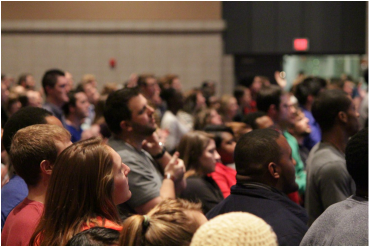 Now there were staying in Jerusalem God-fearing Jews from every nation under heaven. When they heard this sound, a crowd came together in bewilderment, because each one heard their own language being spoken. Utterly amazed, they asked: “Aren’t all these who are speaking Galileans? Then how is it that each of us hears them in our native language? 9 Parthians, Medes and Elamites; residents of Mesopotamia, Judea and Cappadocia, Pontus and Asia, bPhrygia and Pamphylia, Egypt and the parts of Libya near Cyrene; visitors from Rome 11 (both Jews and converts to Judaism); Cretans and Arabs—we hear them declaring the wonders of God in our own tongues!” … Those who accepted his message were baptized, and about three thousand were added to their number that day. Acts 2:5-11,47 Now in the church at Antioch there were prophets and teachers: Barnabas, Simeon called Niger, Lucius of Cyrene, Manaen (who had been brought up with Herod the tetrarch) and Saul. Acts 13:1 Should local Christian congregations strive toward ethnic diversity? Does it really matter? Does God even care? It’s funny to me that this question is rarely asked and, if it is addressed, it is glossed over by many as unimportant. The status quo seems to override any concern regarding what “should be.” Yet, this seems to be somewhat unique in the church world. We rarely say, “well lots of people are promiscuous and prefer fornication over purity, so let’s just leave it that way.” Or, “people just don’t like giving. They prefer spending their money on frivolous purchases rather than on God’s work. Let’s stop bringing it up.” We don’t do that, nor should we. As believers we are guided by Scriptural teaching and also, quite often, by Biblical pattern. How many times have you heard people talk about the early church and how it is a model for us today? It is a model of purity, generosity, boldness, community, and scores of other desirable Christian traits. Yet, diversity rarely, if ever, makes it on this list. Why? The simplest answer is that we don’t look at this text at all the way Luke (the author) intended us to. First of all we have transformed the thesis of his book, “Jerusalem, Judea, and the outer most parts of the world,” to mean we should start our Christian work in our hometown, with our own people and work out from there. The only problem with this interpretation is that Jerusalem was not the apostle’s hometown. Even here in Acts they are described as “Galileans,” a term I do not think connoted respect and admiration. If you read Luke’s first volume, traditionally refereed to as “the gospel of Luke”, you’ll see that it ends with Jesus explanation that “repentance for the forgiveness of sins will be preached in his name to all nations, beginning at Jerusalem” Luke 24:47 (emphasis mine). The apostles were not from Jerusalem. They probably neither liked nor where like there. Yet, they went there, in obedience to Jesus command, because the plan of God was clearly to spread the gospel from there to the nations. What better way to do that than to share it with the nations on the very day of the church’s birth? The gospel did spread from Jerusalem, but not from a homogeneous congregation that birthed other homogeneous congregations but from a heterogeneous congregation that birthed other congregations filled with even greater diversity. It’s clear that the church born on the day of Pentecost was made up from “God-fearing Jews from every nation under heaven.” Yes, these new converts to gospel were all “Jews and converts to Judaism”, but they were definitely multi-ethnic, multi-lingual, and multi-racial. Multi-racial? Yes, remember the Ethiopian eunuch from Acts 8. We are told he was in Jerusalem to worship and he was reading Isaiah in his chariot. Therefore we can conclude that he was both Jewish and Ethiopian. There were Ethiopian Jews in Moses day (Numbers 12:1) and they still exist today. Thus, the very first community of believers was this wonderful mix of languages, ethnicities, and races. Did this mixing of peoples cause difficulties? Of course, bringing together more than one person usually causes problems. The first issue the church dealt with that Luke tells us about was caused by real or perceived ethnic discrimination (Acts 6) and was dealt with by real gospel-centric action. There is also the wonderful pattern of the church in Antioch. Look at the name of the leaders of the church that launched Barnabas and Paul’s missionary journeys. Jews, Gentiles, and a man called Niger- black. Whether Niger was a Jew or a Gentile we don’t know, but we do know that this Christian community was so unique that people had a hard time defining them. The church in Jerusalem, being all Jewish, was regarded as one of many Jewish sects. The church in Antioch was so different in it’s make up that those around had to come up with a new name for them- Christians (Acts 11:26). If this is not enough of a pattern for you look over the list of names Paul sends greetings from and to in his epistles. You’ll find them varied and diverse in every way. Male and female, Jew and Gentile, slave and free (Gal. 3:28). Was this easier to achieve in their day and age? No. They had the same national pride, ethnocentrism, and much, much worse social class distinctions. Yet, those believers were able to find unity and community through living out the genuine gospel of Jesus. Now there’s a pattern we really need to follow. |
Categories
All
Contributing Authors
|

 RSS Feed
RSS Feed